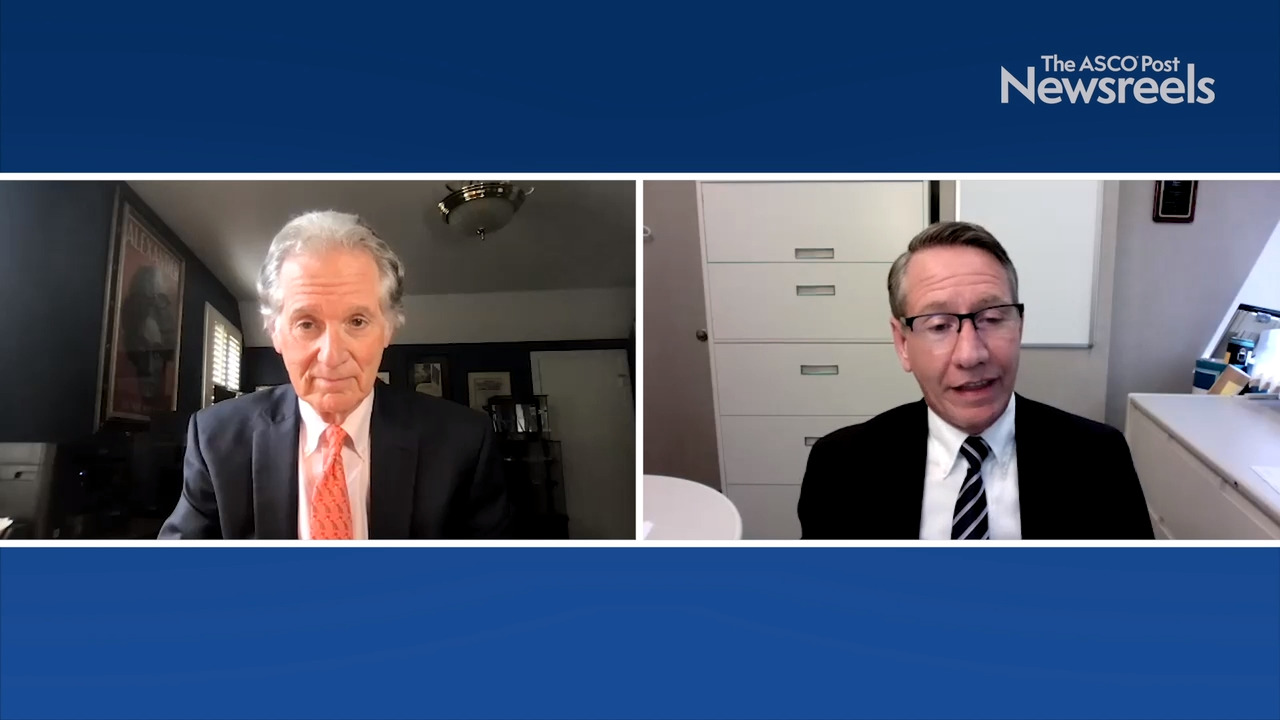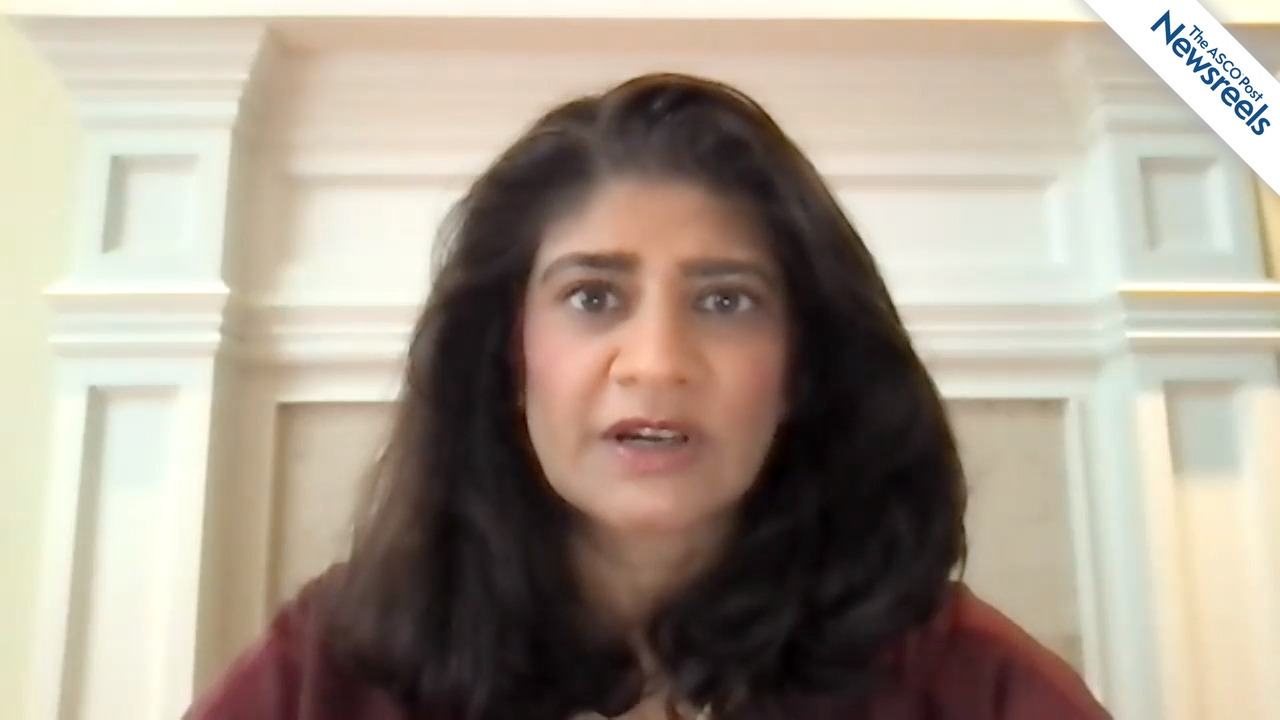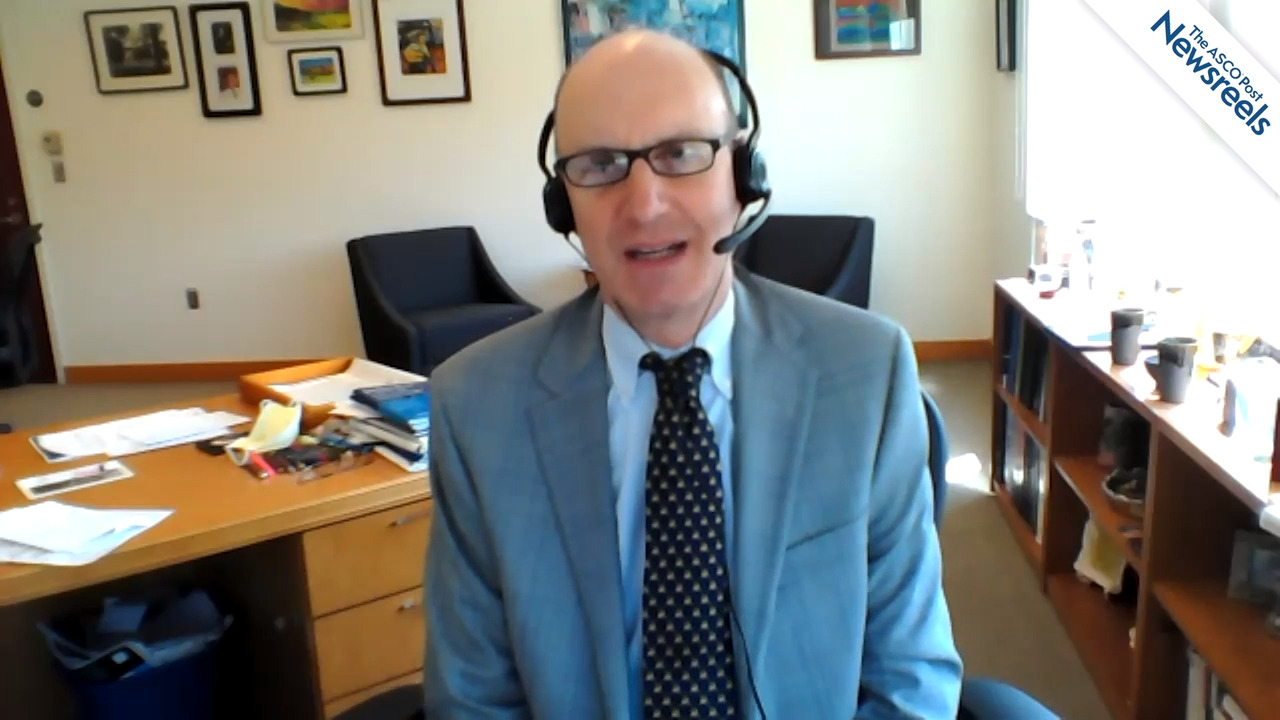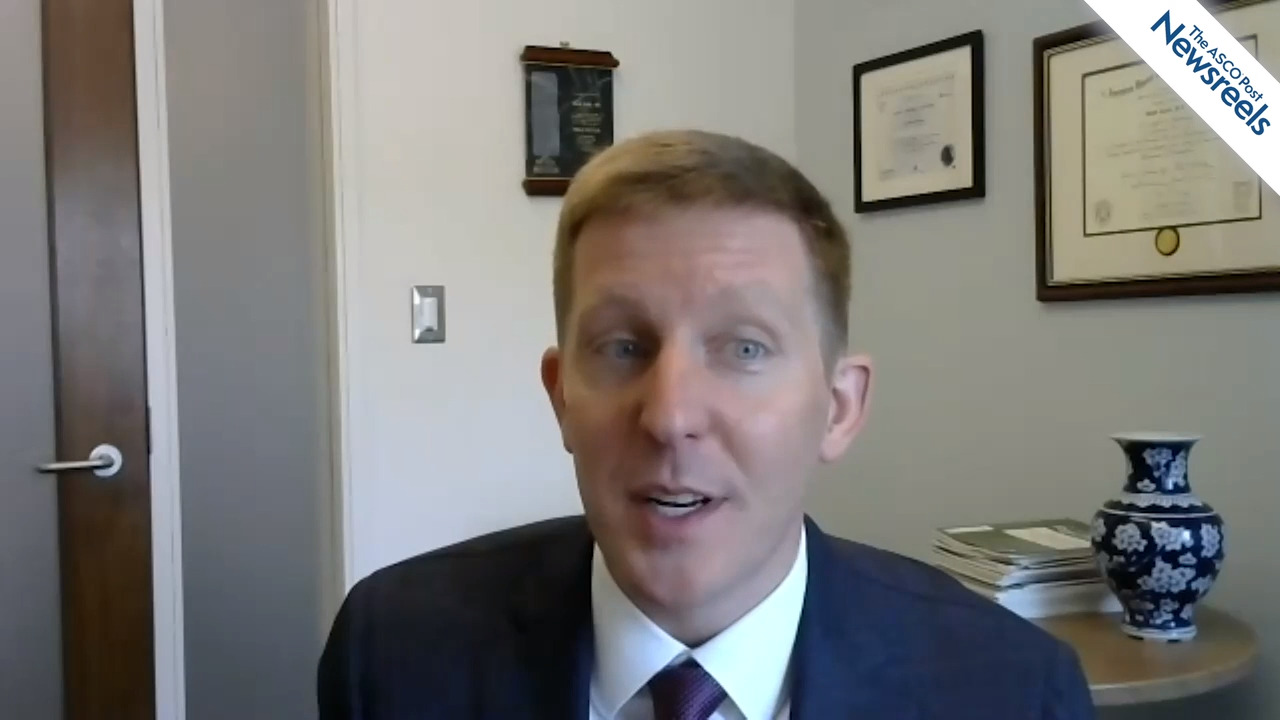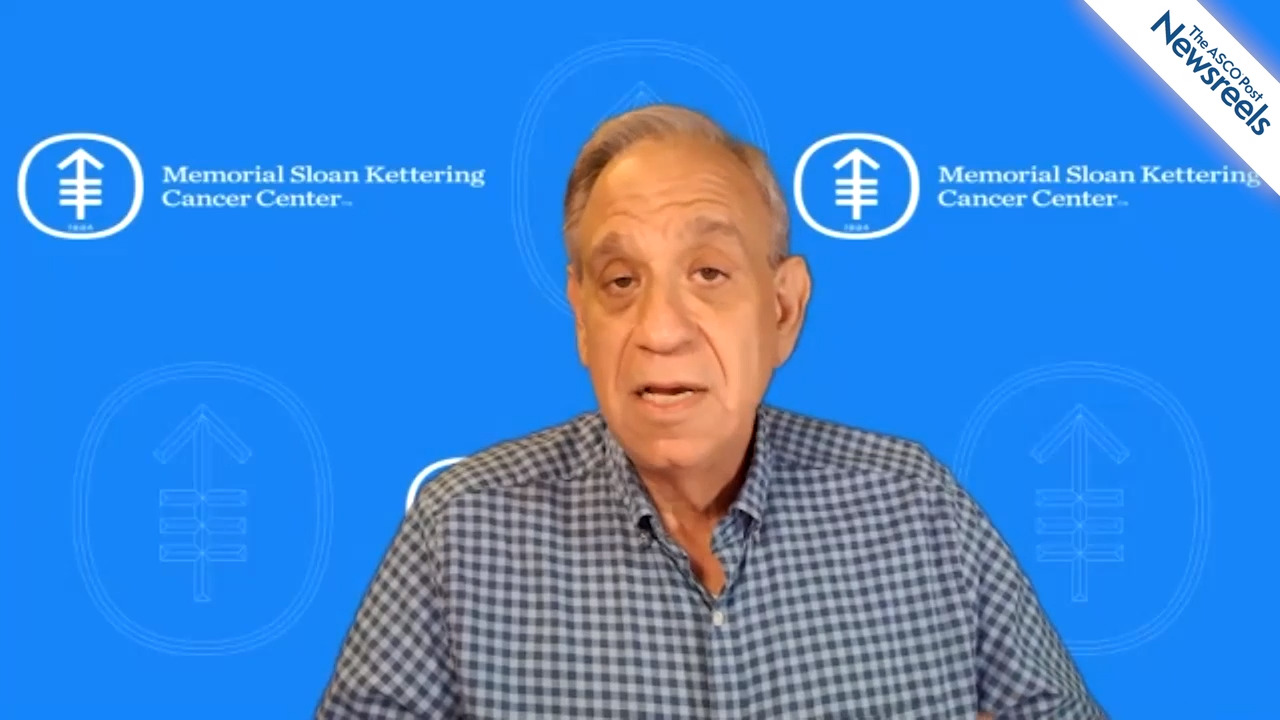Steven M. Horwitz, MD, on Advanced-Stage Mycosis Fungoides and Sezary Syndrome: Update on Management Practices
2021 Pan Pacific Lymphoma Conference
Steven M. Horwitz, MD, of Memorial Sloan Kettering Cancer Center, discusses treatments for advanced mycosis fungoides and Sezary syndrome, including brentuximab vedotin and mogamulizumab, and how best to choose among treatments.
The ASCO Post Staff
Stephen M. Ansell, MD, PhD, of the Mayo Clinic, and Bruce D. Cheson, MD, of the Lymphoma Research Foundation, engage in a lively debate about CAR T-cell therapy, how it fits in with immunotherapy and nonchemotherapy approaches, and how to decide which treatment is right for which patient, especially given the many challenges of obtaining CAR T cells.
The ASCO Post Staff
Sonali M. Smith, MD, of the University of Chicago, discusses the many uncertainties in preventing secondary high-grade B-cell lymphomas, which have a poor prognosis; how to discern the patients at highest risk; and whether prophylaxis with monoclonal antibodies such as rituximab can mitigate the likelihood of secondary lymphoma.
The ASCO Post Staff
Jonathan W. Friedberg, MD, of the University of Rochester Medical Center, discusses treatment options for follicular lymphoma, focusing on the combination of lenalidomide and rituximab and why he uses that regimen for first relapse but not front-line therapy.
The ASCO Post Staff
David S. Kroll, MD, of Brigham and Women’s Hospital, discusses the symptoms of distress in patients with lymphoma and other oncologic malignancies, risk factors for poor outcomes, and how best to approach the management of depression and anxiety in this population.
The ASCO Post Staff
Andrew D. Zelenetz, MD, PhD, of Memorial Sloan Kettering Cancer Center, discusses the role of minimal residual disease evaluation in the treatment of non-Hodgkin lymphoma, techniques used to predict relapse such as immunosequencing and CAPP-Sequencing, and whether such assays could replace the use of imaging with its attendant radiation exposure.
